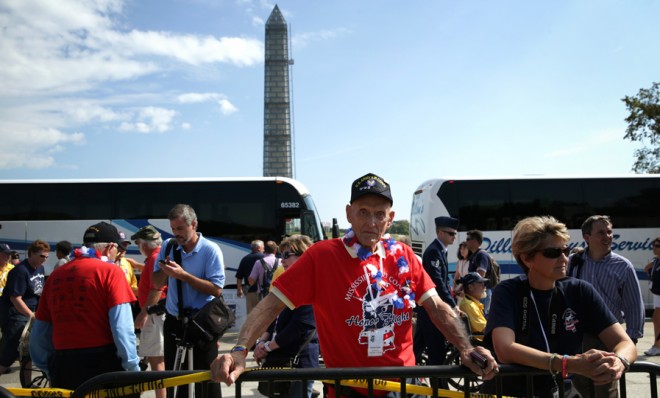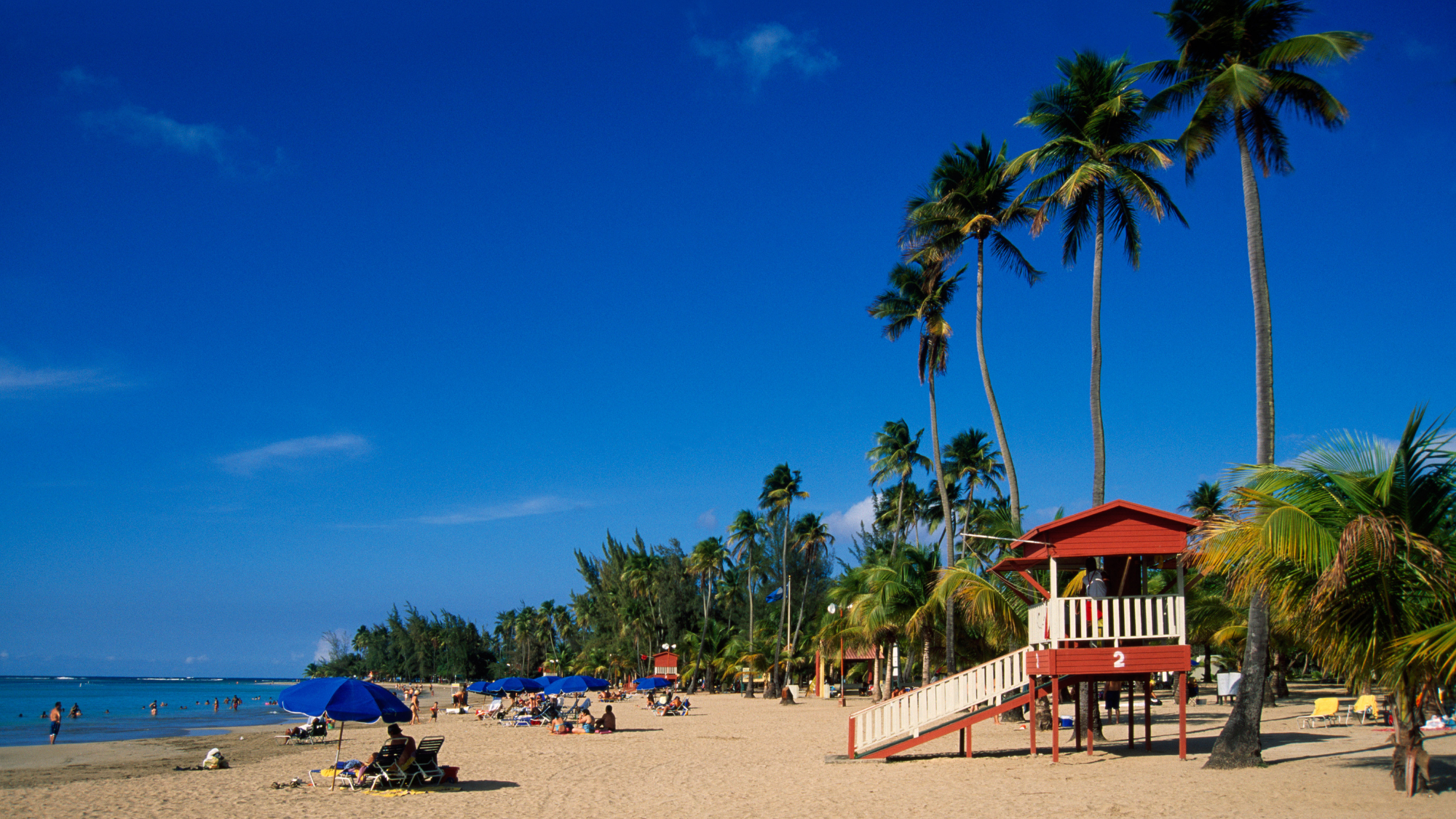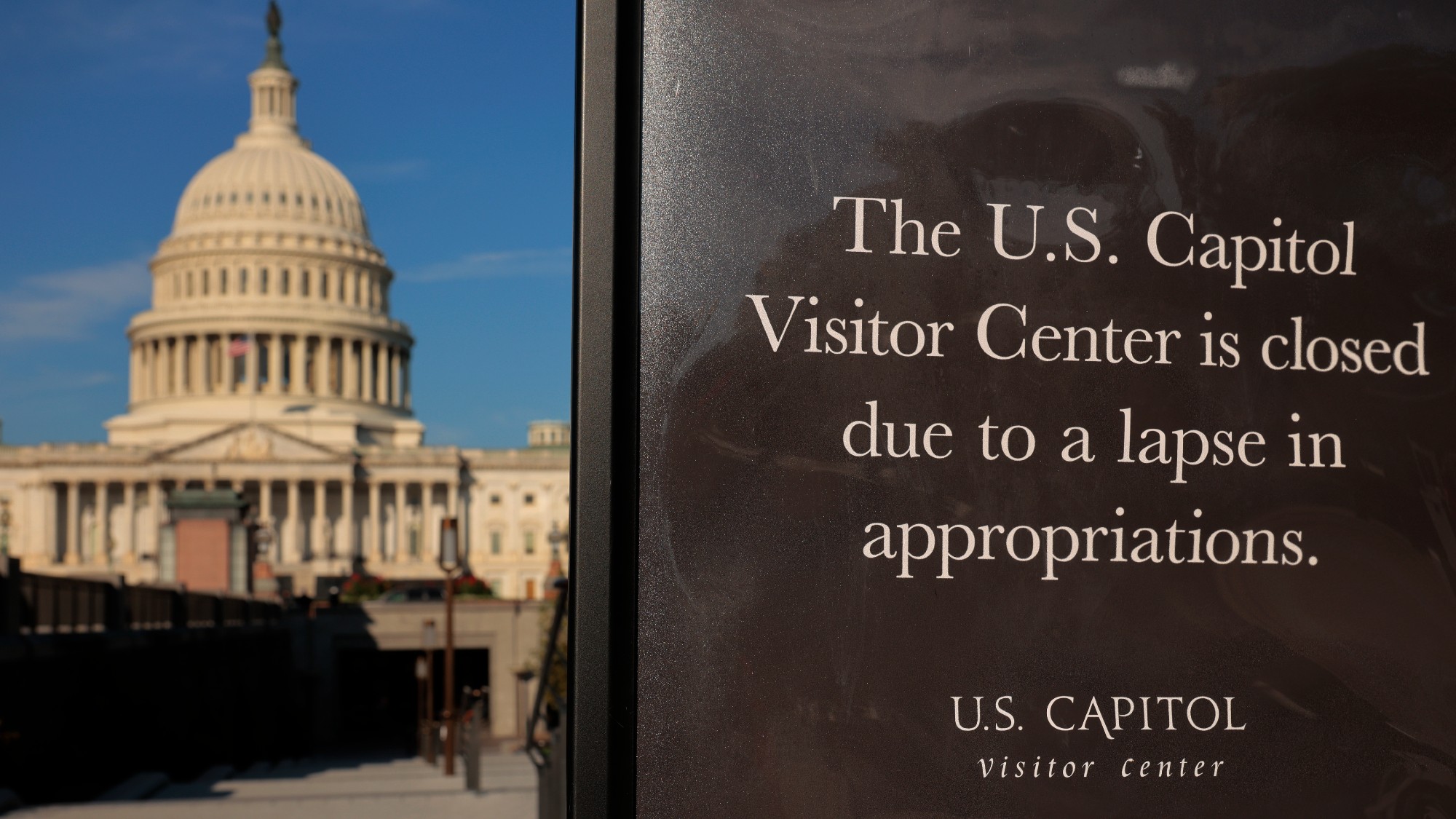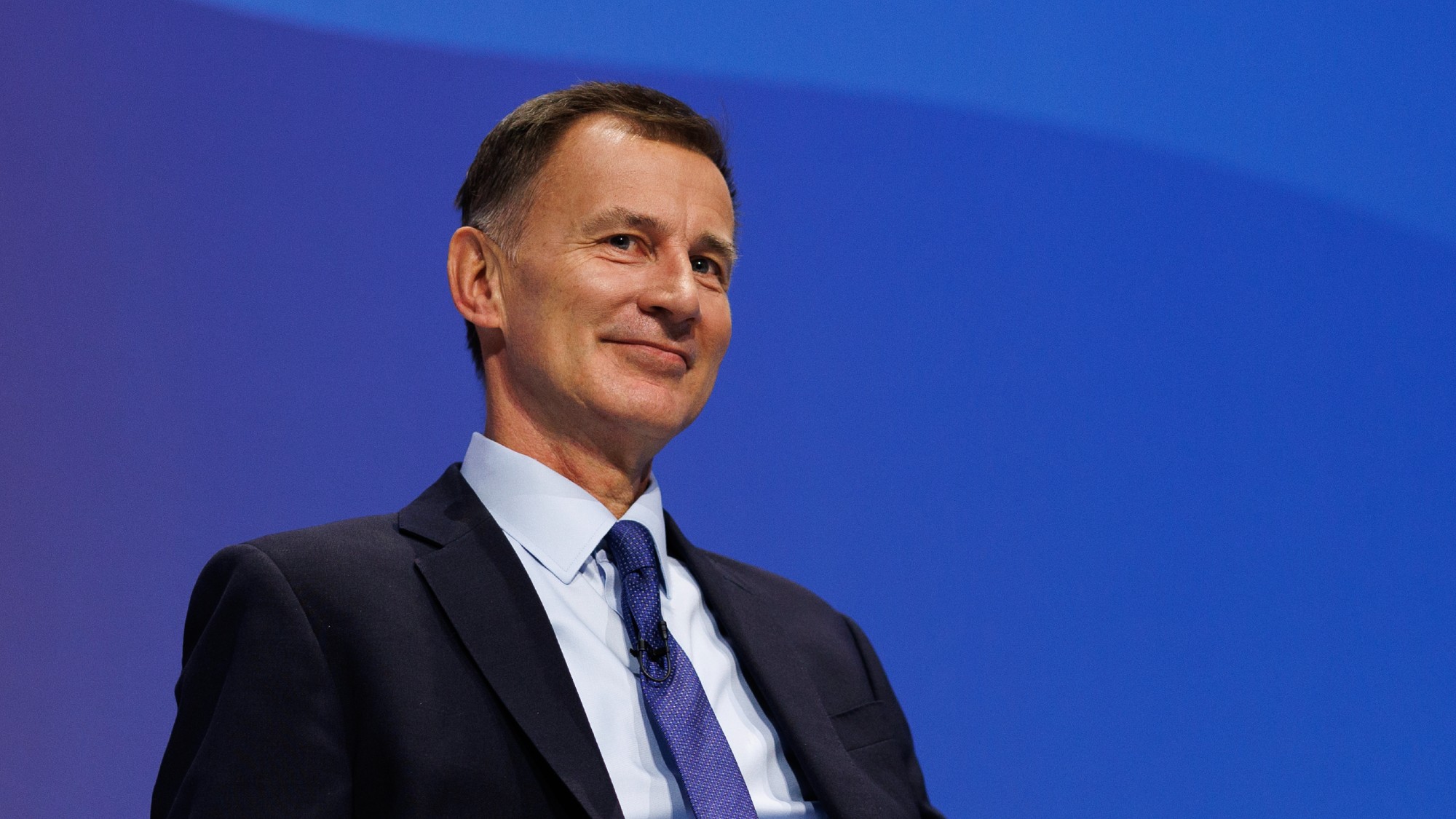Is it really necessary to shut down all the monuments in Washington?
Some say President Obama is messing with vets out of cold political calculation


In an otherwise depressing day of Washington nonsense, it was a story to warm your heart: Two groups of World War II veterans were able to spend some time Tuesday at the National World War II Memorial, despite the fact that the memorial was closed due to the government shutdown.
But it turns out the whole episode may have a lot to do with Washington brinksmanship after all.
The 140 or so elderly vets, from Mississippi and Iowa, arrived in Washington on long-planned "Honor Flights" — heavily subsidized tours of Washington memorials for the wars the vets served in. When they encountered the fence around the WWII monument, they were greeted by a group of Republican lawmakers who helped them cut the tape and move the barriers that sealed the grounds, with park rangers looking on.
The Week
Escape your echo chamber. Get the facts behind the news, plus analysis from multiple perspectives.

Sign up for The Week's Free Newsletters
From our morning news briefing to a weekly Good News Newsletter, get the best of The Week delivered directly to your inbox.
From our morning news briefing to a weekly Good News Newsletter, get the best of The Week delivered directly to your inbox.
GOP Reps. Steve King (Iowa), Steven Palazzo (Miss.), Michele Bachmann (Minn.), and the other Republicans there had a point to make: Why did President Obama try to keep the WWII heroes out of their monument in the first place? Palazzo tells The Daily Caller that he even asked the White House for special waivers for the vets, but was brushed aside with a curt "It's a government shutdown, what do you expect?"
The Republican National Committee and conservative media have jumped on the story, too. "Putting up barriers around open outdoor monuments was dumb shutdown theater," writes Glenn Reynolds at Instapundit, "and they deserve to have it backfire on them."
The Atlantic's Garance Franke-Ruta points to a theory for why the WWII memorial, along with every other open-air monument in Washington's Mall, has been closed to the public: Washington Monument Syndrome. Here's Wikipedia's definition:
The Washington Monument syndrome, also known as the Mount Rushmore Syndrome, or the firemen first principle, is a political tactic used in the United States by government agencies when faced with budget cuts or a government shutdown. The tactic entails cutting the most visible or appreciated service provided by the government, from popular services such as national parks and libraries to valued public employees such as teachers and firefighters.... The name derives from the National Park Service's alleged habit of saying that any cuts would lead to an immediate closure of the wildly popular Washington Monument. [Wikipedia]
Conservatives lobbed the same accusation at the Obama administration when it closed down White House tours in March, citing budget cuts mandated under sequestration. The charge is that Obama is trying to make Republicans look bad by focusing budget cuts on the places most noticeable to average citizens.
A free daily email with the biggest news stories of the day – and the best features from TheWeek.com
Is it a fair charge, though? National Park Service spokeswoman Carol Johnson says that the agency is furloughing some 330 park rangers and workers assigned to the Mall — as well as Johnson herself — leaving just the Park Police to guard the monuments and memorials. Technically, the entire Mall will be closed, but "NPS doesn't have enough barricades to mark off the entire expanse," notes Washingtonian's Benjamin Freed.
"We have been getting quite a few calls from Honor Flights and have had to let them know that the memorial will be closed and the fountain will be off, that the Mall is legally closed," Johnson told The Washington Post on Monday.
"Park Service did not want to barricade these, but unfortunately we have been directed, because of the lack of appropriations, to close all facilities and grounds," Johnson told CNN on Tuesday. "I know that this is an open-air memorial, but we have people on staff who are CPR trained, (and) we want to make sure that we have maintenance crew to take care of any problems. What we're trying to do is protect this resource for future generations."
And the Washington monuments aren't alone. The National Park Service is furloughing 21,379 of its 24,645 employees and closing all 401 national parks, museums, battlefields, and other tourist draws under its care.
The Huffington Post's Sam Stein finds the idea that this is a stunt laughable:
Either way, the Obama team isn't the first to shut down popular national parks or the Washington Mall during a budgetary lapse.
The World War II Memorial wasn't around in 1995-96, but the National Park Service shut down the Washington Monument, Lincoln Memorial, and other Washington tourist attractions during those shutdowns, keeping out an estimated two million visitors. That was on Bill Clinton's watch, but the practice is bipartisan: In the brief Columbus Day shutdown of 1990, George H.W. Bush shut down Washington's monuments and museums, too.
And if getting the public attention's was the point, it worked. "Once the shutdowns began, the reaction from people who wanted access to the parks was absolutely incredible," Bruce Babbitt, who was the interior secretary during the '95 and '96 shutdowns, told the San Jose Mercury News on Monday.
"The park closures in 1995 made a tangible difference," agreed Joan Anzelmo, then spokeswoman for Grand Teton National Park. "The visual of park rangers closing down national parks, closing down the Statue of Liberty and the Washington Monument — keeping Americans out of these iconic American sites — those visuals were really a strong factor in people understanding what a government shutdown meant. People got mad."
Republicans are aware of this, which is one reason why you'll probably hear a lot about those World War II vets. "The politics of the shutdown has so far appeared to favor Democrats," say BuzzFeed's Evan McMorris-Santoro, Jacob Fischler, and Benny Johnson, but "the memorial protests could serve as a flashpoint that turns public opinion against the White House."
Peter has worked as a news and culture writer and editor at The Week since the site's launch in 2008. He covers politics, world affairs, religion and cultural currents. His journalism career began as a copy editor at a financial newswire and has included editorial positions at The New York Times Magazine, Facts on File, and Oregon State University.
-
 Embrace the Boricua spirit on a foodie tour of Puerto Rico
Embrace the Boricua spirit on a foodie tour of Puerto RicoThe Week Recommends From cultural food tours to organic farms, there is plenty to discover around the island
-
 The longest US government shutdown in history
The longest US government shutdown in historyThe Explainer Federal employees and low-income households have been particularly affected by ‘partisan standoffs’ in Washington
-
 Jeremy Hunt picks his favourite books
Jeremy Hunt picks his favourite booksThe Week Recommends The former chancellor shares works by Mishal Husain, Keach Hagey, and Johan Norberg
-
 Has Zohran Mamdani shown the Democrats how to win again?
Has Zohran Mamdani shown the Democrats how to win again?Today’s Big Question New York City mayoral election touted as victory for left-wing populists but moderate centrist wins elsewhere present more complex path for Democratic Party
-
 Millions turn out for anti-Trump ‘No Kings’ rallies
Millions turn out for anti-Trump ‘No Kings’ ralliesSpeed Read An estimated 7 million people participated, 2 million more than at the first ‘No Kings’ protest in June
-
 Ghislaine Maxwell: angling for a Trump pardon
Ghislaine Maxwell: angling for a Trump pardonTalking Point Convicted sex trafficker's testimony could shed new light on president's links to Jeffrey Epstein
-
 The last words and final moments of 40 presidents
The last words and final moments of 40 presidentsThe Explainer Some are eloquent quotes worthy of the holders of the highest office in the nation, and others... aren't
-
 The JFK files: the truth at last?
The JFK files: the truth at last?In The Spotlight More than 64,000 previously classified documents relating the 1963 assassination of John F. Kennedy have been released by the Trump administration
-
 'Seriously, not literally': how should the world take Donald Trump?
'Seriously, not literally': how should the world take Donald Trump?Today's big question White House rhetoric and reality look likely to become increasingly blurred
-
 Will Trump's 'madman' strategy pay off?
Will Trump's 'madman' strategy pay off?Today's Big Question Incoming US president likes to seem unpredictable but, this time round, world leaders could be wise to his playbook
-
 Democrats vs. Republicans: who are US billionaires backing?
Democrats vs. Republicans: who are US billionaires backing?The Explainer Younger tech titans join 'boys' club throwing money and support' behind President Trump, while older plutocrats quietly rebuke new administration
